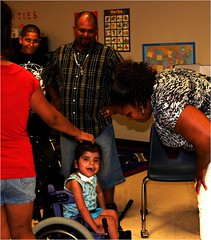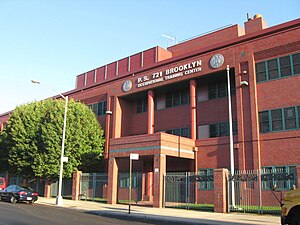 Image via WikipediaWe had an interesting teaching moment this week. My son and I went out to play in the neighborhood. My usual routine is to stand back and let him go when possible and watch closely. As has happened often, this time intervention was required.
Image via WikipediaWe had an interesting teaching moment this week. My son and I went out to play in the neighborhood. My usual routine is to stand back and let him go when possible and watch closely. As has happened often, this time intervention was required.Some boys started mockingly saying he "looked like Justin Beiber". I think we should conclude that was a bad thing. Not that I have an opinion. My m.o. is always to avoid the sins through education. As I walked across the playground thinking "welcome to school, boys", they looked a little apprehensive. I may have a reputation that precedes.
What followed was a twenty minute autism Q &A with four of the cutest ten-year-olds on the block, and an incredible interaction for my son. We talked about sign language and why my son can be "creepy" when he stares. We exchanged information, and, at the end, they wanted to go try their new sign language on him and say hi. He said hi back.
Just like that, a potential bully situation became a seminar in autism. D bounced off the playground feeling included, and, with any luck, four young men developed a special view of the disabled.
Autism awareness flows from our willingness to get over ourselves as parents. We have to see our child as the world sees him in order to interpret for him. That isn't easy. I suspect it isn't meant to be.
We are the bridge, which means we have to connect to the other side. D can be creepy if you don't know him, and when he screams and yells, it wakes the dead and makes young hearts tremble. I have to accept these things before I can help anyone else connect with him. If I get all momma bear when someone finds him creepy, I'm already defensive and ineffectual. But if I reach out with information, I'm a teacher, an ambassador. That's not D's job. It's mine. I'm the Bridge.











































